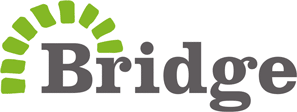Enabling girls to flourish in school
1 May 2018
Enabling women and girls to flourish has underpinned the design of our approach to education; allowing girls to re-write their futures in underserved communities across Kenya, Uganda, Nigeria, Liberia, India and beyond.
Ensuring that this approach is embedded into our design is essential when considering the data published on learning and girls. While global out-of-school rates have improved over the last 10-15 years, many girls continue to remain out of school. In 2015, the rate of out-of-school children aged 6-11 years was at 10% while for children aged 12-14 years it was at 16%. Despite this, 15 million girls of primary-school age will never get the chance to learn to read or write in primary school compared to about 10 million boys (UN Women). These statistics are more dire in developing regions as a third of countries in developing regions have yet to achieve gender parity in primary education (UN). In Nigeria for instance, average primary school attendance is 66% among girls overall but only 12 % among poor hausa girls from rural areas. Due to our focus on bringing girls to the classroom, Bridge is proud to have reached near gender parity in Early Childhood Development and Primary enrolment across all of our more than 500 schools. More so in conflict and post-conflict areas where we operate; like Northern Nigeria, South-east Liberia and Garissa County in Kenya. Bringing them to the classroom is just part of the challenge, creating a system that enables them to learn when they are in the classroom can be far harder; but when implemented successfully it can see girls excel across a number of metrics.
Outperforming the Boys
Based on Bridge’s holistic approach to gender-equitable teaching and lesson design, our focus on helping girls grow in the classroom, and all the approaches described above, we have seen our girl pupils excel across a number of metrics.
In Kenya’s 2017 KCPE primary school exit exam, Bridge girls earned an additional 17 points above and beyond the national average for girls that year (out of 500 possible points); girls who had attended a Bridge school for over five years were our highest performing cohort, averaging 287 marks. The number taking the exam with Bridge has increased by 20% in 3 years. In Uganda’s 2017 PLE primary school exit exam, 95% of Bridge girls were placed in Division 1 and 2 (top scores) with 62% of girls nationally achieving this status. 100% of Bridge girls passed science and maths. In Liberia, 68% of Bridge PSL girls who couldn’t read a single word at the beginning of the year, could read by the end of the year with the average girl going from knowing only 1 letter sound to knowing 24 in a year.
These learning gains are the result of a carefully designed learning environment using a multi pronged approach
Gender-responsive monitoring
Bridge uses gender-responsive monitoring and accountability in its schools. Successfully turning gender equity goals into real progress for women and girls is dependent largely on the implementation of gender-responsive strategies, robust monitoring and the creation of effective accountability mechanisms (UN Women). Through Bridge’s innovative wireless technology platform which processes over a hundred million data points a year, Bridge engages in systematic gender-responsive monitoring to ensure effective evaluation of the progress of each of our ~50,000 girl pupils across indicators like attendance and academic performance. Also, through Parent-Teacher Association meetings in various Bridge academies, Bridge parents form a network of empowered partners in seeking further accountability in the education of their girl children. Getting community buy in to girl education and empowerment is essential and can be challenging in areas where child marriage, pregnancy or poverty are pervasive.
Gender-sensitive school management
The positive impact of women teachers on girls’ enrollment is well documented. Evidence shows that in Sub-Saharan Africa especially, a high number of female teachers would usually translate into high numbers of girls enrolled in school (UNESCO). Women teachers also have a positive influence on the achievements of girls in school and in conservative societies especially, they highlight the possibility of women being agents of change in their communities. At Bridge our female teachers and School Leaders, who make up over 60% of total active staff, provide real-time role models within the classroom and larger community. They are all, regardless of gender trained to call on girls as often as boys, and ensure an equal division of leadership roles. Not only are role models at the front of the classroom but they are in the textbooks and workbooks used by children to learn. Materials ensure equal visibility of male and female characters, and specifically represent female characters in powerful, unconventional roles.
Managing a school sensitively also for Bridge also means challenging traditional uses of chastisement in our communities. Bridge also enforces a strict policy against the use of corporal punishment on all pupils, not least because this can set the stage for later acceptance of violence against women. Research has shown that there is a strong link between the acceptance of corporal punishment and violence between partners (OCHR). With this policy in place Bridge, is helping tackle underlying societal issues and ensuring that our girls are free to become more confident, expressive and engaged members of the community.This is also reflected in Bridge’s strongly enforced policy against the expulsion of teen mothers from school.
Co-Curriculars
Outside of academic endeavours, co-curricular activities are important parallel track which improve confidence, self-esteem and teamwork. Additionally, they’ve been shown to have numerous positive benefits on the efficacy of education and overall academic results. By participating in various activities outside the classroom, pupils have the opportunity to independently pursue their passions, and develop skills not covered by the curriculum. A prime example of this is the development of organisational and time management skills, with older pupils balancing their academic and co-curricular activities. Bridge therefore encourages girls to hone and practice leadership skills through participation in various co-curricular activities like drama, Chess and the Arts and taekwondo. Girls are especially encouraged to engage in sports like athletics, ball-games and taekwondo which typically have less female participation.
Outside of the classroom, six-year old Kitty Elisha represented Uganda at the African Junior Chess Championships in Zimbabwe while 13-year old Sharon Akinyi, won second place in Kenya’s national essay-writing competition and Miriam Muthoni went as part of the winning taekwondo team representing Kenya in Rwanda. From poetry to dance; song to sport, Bridge girls are exuding confidence and bringing trophies back to their communities.
Community Initiatives
Showing girls powerful role models is as important in the community as in the classroom and so Bridge supports a range of community initiatives focused on this; the ‘Super Mama’ initiative is a prime example. In Kenya, each school selects “Super Mamas”, who are closely involved with the school, to work on empowerment programs. These women are the voice of their local communities and contribute to planning and decision-making within Bridge schools. In addition, these women continue to work in their communities and supporting other women in starting new businesses; creating forums around important issues, and acting as leaders. Various projects that have been lead by Super Mamas include the provision of sanitary pads to Bridge girls; supporting school feeding programs and helping other parents with financial planning. Watching these Super Mamas in action provides great models for not only girls but also boys who are taught to value the important role that women play not only in home life but also community life.
In many communities being a young girl can be extremely challenging; there is a greater likelihood of economic and social marginalisation, the prospect of forced marriage and often early pregnancy. It takes a carefully designed holistic approach and an ongoing commitment to change the life chances of young girls; Bridge is trying.









